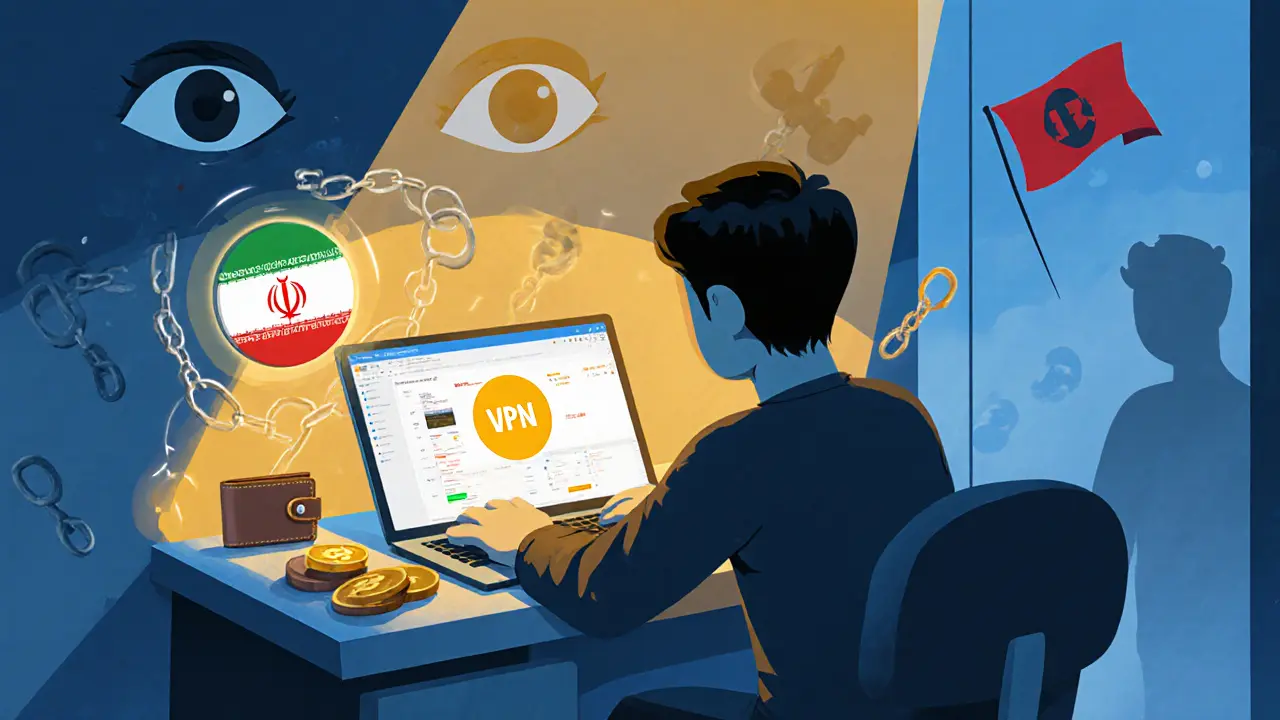Nobitex Iran: What You Need to Know About Iran's Leading Crypto Exchange
When it comes to buying and selling cryptocurrency in Iran, Nobitex Iran, a locally operated cryptocurrency exchange that serves as the primary gateway for Iranians to trade digital assets. Also known as Nobitex, it allows users to deposit Iranian rials and trade for Bitcoin, Tether, and other major coins without needing foreign bank accounts. Unlike global exchanges blocked by sanctions, Nobitex operates within Iran’s financial restrictions, making it the go-to platform for millions of ordinary users who want to protect their savings from inflation.
What makes Nobitex different is how it connects users directly through peer-to-peer trading. Instead of matching buyers and sellers on a centralized order book, it acts as a middleman that verifies transactions and holds funds in escrow until both sides confirm. This model reduces the risk of fraud in a country where traditional banking access is limited. It also means you’re often trading with other Iranians who are just trying to get value out of their crypto—no hedge funds, no whales, just real people using digital money to survive economic pressure.
Nobitex isn’t perfect. It doesn’t offer advanced trading tools, has no public security audits, and its customer support can be slow. But for most Iranians, it’s the only reliable option that doesn’t require a VPN or offshore accounts. Related tools like P2P trading, a method where individuals exchange crypto directly without intermediaries are common here, and platforms like LocalBitcoins, a global peer-to-peer Bitcoin marketplace are often used as backups. But Nobitex’s integration with local banks and its simple app interface keep it on top.
What you’ll find in the posts below are real stories and warnings from people who’ve used Nobitex—or tried to. Some users got stuck with frozen funds. Others discovered hidden fees after trading. A few even found themselves flagged by authorities for using crypto, even through a local exchange. You’ll also see how Iran’s crypto landscape shifts with sanctions, how people use stablecoins like USDT to preserve value, and why many still prefer cash deals over digital ones. This isn’t a theoretical guide. It’s a practical look at what happens when people turn to crypto not for profit, but for survival.
DEX Access for Iranian Citizens: How to Use Decentralized Exchanges Amid Restrictions
Iranian citizens are turning to decentralized exchanges to bypass government restrictions and sanctions. Learn how DEXs like QuickSwap on Polygon, combined with DAI and VPNs, are becoming the only reliable way to trade crypto safely in Iran.
